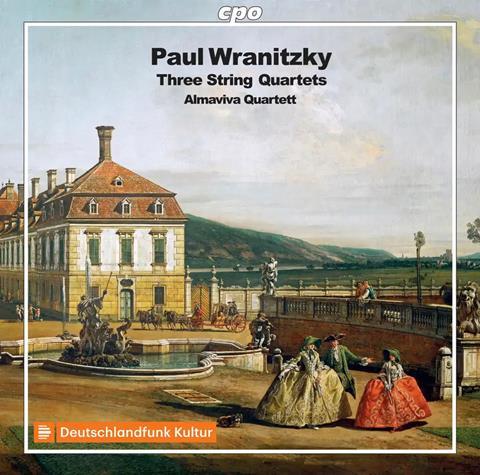Persuasive advocacy brings a neglected Viennese figure to life

The Strad Issue: February 2024
Description: Persuasive advocacy brings a neglected Viennese figure to life
Musicians: Almaviva Quartet
Works: Wranitzky: String Quartets: op.2 no.2, op.32 no.4, op.49
Catalogue number: CPO 555466-2
An exact but longer-lived Viennese contemporary of Mozart, Paul Wranitzky followed Haydn into the service of the Esterházy family and produced music with comparable fluency: 11 operas, 24 symphonies and 54 string quartets await discovery.
That most of them remain unrecorded counts as a minor injustice on the strength of this trio of quartets. The three-movement form is archaic even for the time, and the otherwise first-rate booklet essay does not speculate why Wranitzky omitted a minuet. Even in the earliest of them, G major pleasantries are tempered by a pronounced minor-key tendency. The first violin’s dominance is checked by the Almaviva’s open-textured playing and a generously bass-weighted studio ambience.
By 1798, the date of the G major Quartet op.32 no.4, Wranitzky had embraced a more intricate style of quartet writing but still not the sonata-form design that underpins the works of his great contemporaries. The Almaviva brings a rambling first movement to life with pertinently rhetorical gestures before investing the central variation-form Adagio with near-Haydnesque pathos.
Watch: LPO members play Haydn at the National Gallery
Read: Some Reflections on the Interpretation of Haydn’s Quartets
Read: How Scottish folk music and Haydn have more in common than you think: Maxwell Quartet
Even so, it is op.49, Wranitzky’s last quartet, that rewards real attention and repeated listening. The year is 1804 and it is cast in a turbulent D minor, and a world recognisable from Beethoven’s works on the cusp of his ‘middle’ period. It’s no ‘Rasumovsky’, but the Almaviva players give it every chance with a collectively sweet tone, grainy phrasing and strong rhythmic profile.
PETER QUANTRILL











































No comments yet